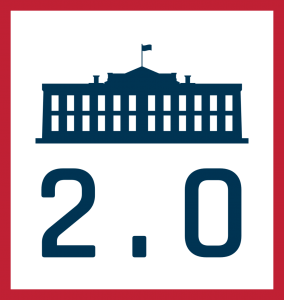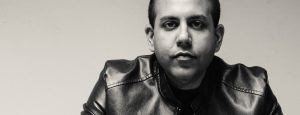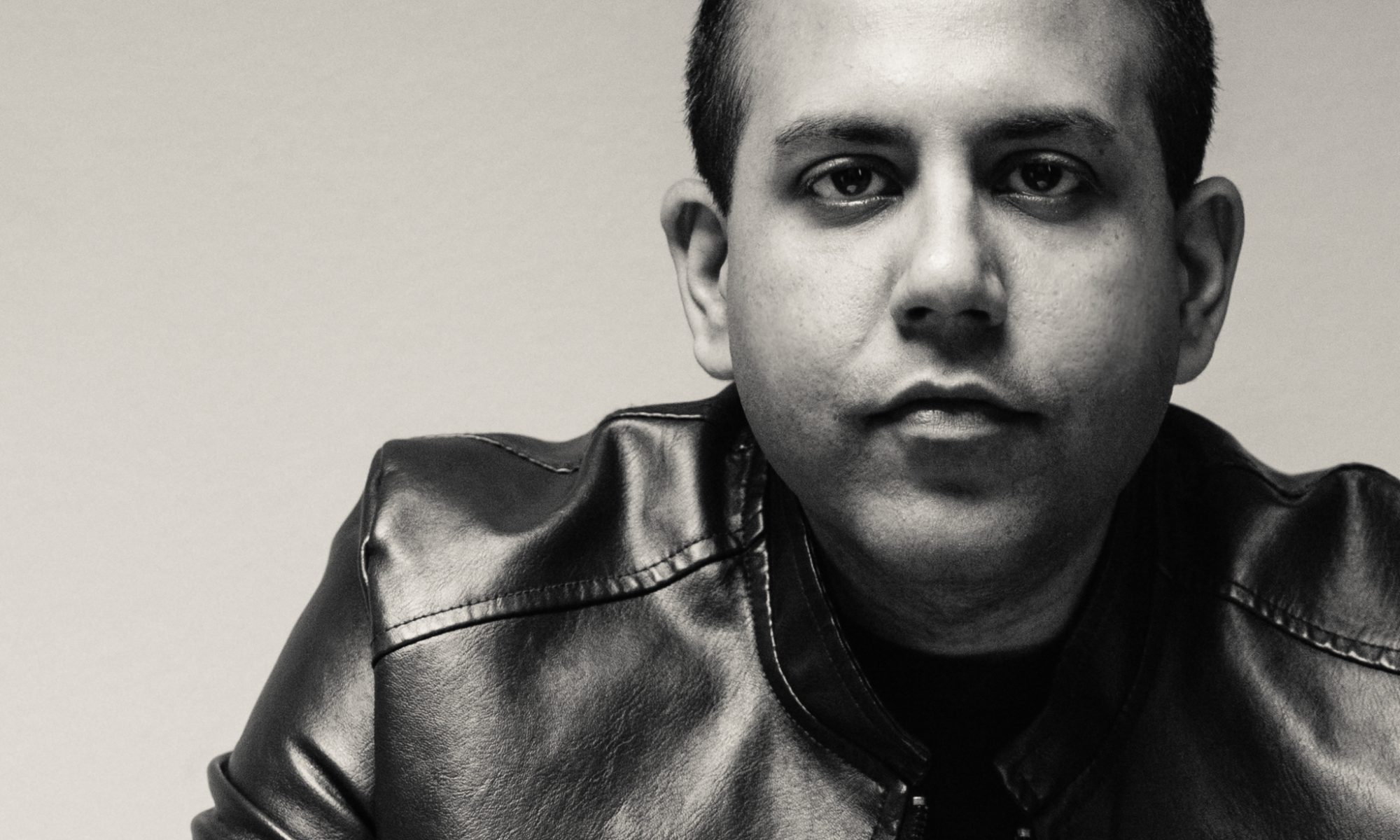Mary: Before we jump into a discussion about the process of writing, JS, I want to congratulate you on the timely release of America 2.0. Of course, the series didn’t come together overnight. What prompted you to develop this project and what do you hope to achieve with its release?
JS: Thank you, Mary! This whole endeavor started right after the 2016 election. My best friend, co-writer, and fellow Wake alum (we met in a Screenwriting class at WFU) David Carlyle, and I started discussing the idea of the American dream, and what American ideals meant anymore. In going back and forth via email, we (as science-fiction writers) started to posit how one could fix the country: no idea was crazy enough! Alternate universes? Split timelines? Aliens taking over? And then David threw something out that, while seemingly ludicrous, felt like an incredible hook… a premise that could draw people in, and give us a platform to talk about politics in an intelligent, non-partisan way.

David and I have always believed that politics is supposed to be aspirational, and yet it’s become anything but. This idea allowed us the opportunity to get back to high-minded political discourse, while also (hopefully) being entertaining.
Mary: I met you when you were a graduate student in the Communication Department at Wake Forest University. There are some deep WFU connections running America 2.0, aren’t there?
JS: Yes, very much so. Of course, the obvious Wake connection is David and I meeting in a Screenwriting class. But over the years, we have often talked about the Wake motto: pro humanitate. It’s resonated with us very deeply, and sort of defined the ethos of our show.
Mary: When I think of you as a student, JS, I think of three things: your earnestness and passion, your work ethic, and your willingness to take chances. I guess that’s really four, but I think of them as three! After a beat, I also think about talent, but without the other elements–especially the work ethic–talent alone is not enough. Specifically, I want talk about your work ethic. I recollect that you wanted to work on depth and range. You wanted to work on craft and improve the individual scripts you were writing but also to develop stories that spanned a range of topics, genres, and hybrid narratives that didn’t fit precisely into genres. That’s how I have thought of you as a writer. You wanted to be good but also marketable. How do you think of yourself as a writer?
JS: Well, I think you’ve encapsulated it better than I could. I do not like being confined to genres. I am a consummate student of the world. I am constantly interested in stories. I love discovering and creating new worlds. So with every new project, I want to do something totally different. That’s what drives my creativity. In terms of work ethic, there’s an anecdote I’d like to share. A colleague of mine was the assistant to Steven Spielberg. I asked him what that was like – working for someone as gifted as Mr. Spielberg? Is he just magic? And he responded – “Well, yes, he’s great. But honestly, he’s one of the hardest working people I’ve ever met.” That just stayed with me. I may not be as naturally gifted as some of the best filmmakers in the world, but the one thing I can control, is how much work I put in. I would stack my drive, determination, and sheer hard work against the best of them! Talent is innate (and hopefully, I have some)… but it’s the discipline, the attention to detail, traits like kindness and being a good person… that I think ultimately have led to my success. Lastly, I think my career changed the day I stopped writing what I *thought* people would like, and just started writing for myself. That doesn’t mean being indulgent. It’s just about trusting one’s gut.
Mary: Every writer and wannabe writer is curious about how other people do it. What is your process like? Do you write every day? At the same time? Is there a special place where you write?
JS: I did write every day, until I started America 2.0, and that has consumed me. Being the co-writer, director, producer and executive producer, I’ve sort of been in “showrunner mode” for a little bit. But usually, yes – I’m someone who’s always writing and working on 3-4 ideas simultaneously. That makes it so that I’m never really blocked, and if I’m stuck on something, I can just go to the other idea. I can write anywhere. As long as I have my headphones, and a playlist, I can disappear into whatever world needs my attention on any given day.
Mary: How do your best ideas emerge?
JS: No clue! Although, I’ve recently noticed that I’ve been channeling more ideas, than actively chasing them. The best ones seem to happen organically. Although deadlines are a great motivator too. So, the fear of disappointing someone, or the sheer terror of missing a deadline often gets the creative juices flowing.

Mary: America 2.0 is a co-written project, but you also work independently. Am I correct that you most often work alone?
JS: I have been doing more and more solo projects off late. All my directing projects (aside from America 2.0) are things I’ve written on my own. I sold a pilot to Syfy/Universal last year, which was just me. I’m also currently developing several TV shows that are just me.
Mary: How is it different working with a writing partner? What are the advantages and disadvantages to each way of approaching the work?
JS: Honestly, I love working with a writing partner. David and I couldn’t be more different on paper, but we’re like two bodies one brain. And our skills/strengths compliment each other perfectly. I don’t see any disadvantages (personally) to co-writing. It’s just, sometimes I have ideas that interest me more than David, and so I tackle those on my own.
Mary: Two last questions. First, what advice do you have for people who want to be where you are now? You knew I had to ask the obligatory advice question!
JS: If you want to be a writer, it’s a very simple set of instructions:
First–ass in chair.
Second–hands on keyboard.
Third–write.
I kid, of course. But I’d advise people to set a goal, be a good person, and then move tirelessly toward it. When I came to the US in 2005, I hardly knew anyone in the country, let alone have any connections to the industry. Now I’m working with all my childhood heroes, going into rooms at the highest levels, and being treated as a peer. It sounds like a fairytale, but to me, it’s very heartening. If I could do it, anyone could!
Mary: Finally, where, when, and how do people listen to America 2.0?
JS: The first episode of America 2.0 debuts on September 19th. You can subscribe through all the major podcasting platforms: Apple Podcasts, Spotify, iTunes, Soundcloud, Google Play, Tune In, iHeartradio, basically any platform where you find your podcasts! People can also just check out our website directly, www.reinventingtomorrow.com .
Mary: I will subscribe!!! It’s been an absolute pleasure as always, J.S. Let’s get you back to Winston-Salem very soon. Oh, that reminds me! Indulge me one more question! What do you miss most about Wake Forest and Winston-Salem? I know you loved your time here.
JS: I miss the campus. I’ve been to a lot of colleges/universities, but Wake is just one of the most beautiful ones out there. I also really miss the people – the faculty, the staff, and my fellow students (one of whom is now a faculty member! Can’t wait to reconnect with Cagney.) I really enjoyed going over to NCSA, and their creative students. Also, there’s an incredible Thai restaurant downtown – Cha Da Thai, maybe? I really miss that place.
Mary: There are so many good restaurants here now. You won’t believe the downtown. Let’s try to make that visit to North Carolina happen while the foliage is vivid, and we can check some of them out! It’s hard to beat the landscape here in fall and in spring.
Here’s a link to the 2.0 website again. Don’t forget that the show becomes available wherever you like to get your podcasts on September 19!
